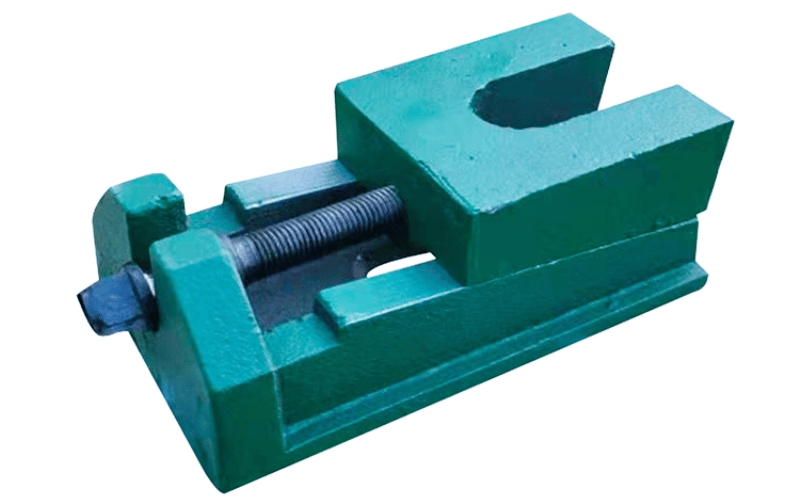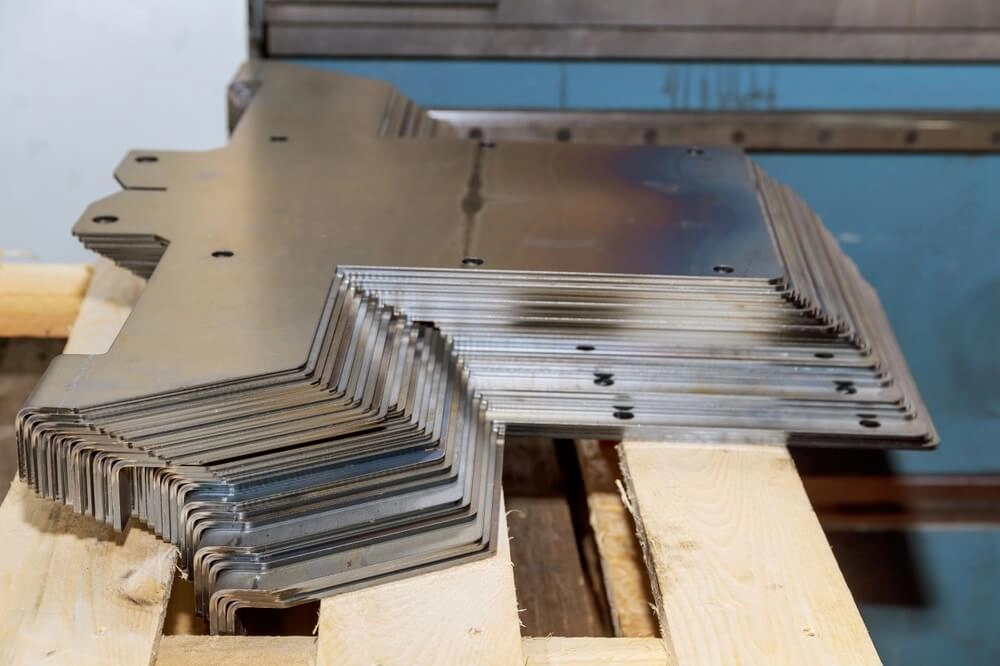What is Mild Steel
Mild steel is a type of low carbon steel, typically containing about 0.05% to 0.25% carbon. This low carbon content gives mild steel its key properties—making it softer, more ductile, and easier to shape compared to higher carbon steels. These characteristics make mild steel highly versatile for a wide range of manufacturing and machining applications.
Common grades of mild steel include A36, 1008, and A1018, each with slight differences in strength and formability. These grades are widely used because they offer a consistent balance of strength, weldability, and cost-effectiveness.
In CNC machining, mild steel is a preferred parent material due to its excellent machinability and weldability. It cuts cleanly, holds tolerance well, and works seamlessly with processes like milling, drilling, and laser cutting. Because of these qualities, mild steel remains a go-to choice for precision parts, structural components, and custom projects in various industries.
Why Mild Steel is the Ideal Parent Material for CNC Machining

Mild steel stands out as the go-to parent material for CNC machining because it machines smoothly and efficiently. Its low carbon content makes it easy to cut, shape, and form without putting too much wear on tools. This means faster turnaround times and less downtime for maintenance.
When it comes to welding, mild steel is highly compatible with common methods like MIG, TIG, and arc welding, ensuring strong, reliable joins. This weldability is important for projects that require assembly after CNC processing.
Cost-effectiveness is another big advantage. Mild steel is generally more affordable than other metals, making it perfect for bulk projects where budget matters. Its versatility means it fits a wide range of industries, including automotive, construction, and consumer goods, handling everything from structural parts to everyday appliances.
In short, mild steel’s combination of machinability, weldability, and lower cost makes it a practical and flexible choice for CNC machining projects across the board.
Applications of Mild Steel in CNC Machining
Mild steel is a go-to choice for many CNC machining projects thanks to its versatility and strength. In construction, it’s widely used for structural beams, frames, and rebar, providing essential support and durability. In automotive manufacturing, mild steel parts like chassis, body panels, and engine components benefit from precise CNC cutting and forming to meet exact specs.
For consumer goods, mild steel shows up in appliances, furniture, and tools, where reliable strength and clean finishes are key. At HYCNC, we specialize in producing precision parts such as brackets, hinges, and plates from mild steel, ensuring each piece fits perfectly and performs well in its application.
This broad range makes mild steel ideal for projects that require both strength and detailed CNC machining, especially when quality and reliability matter most to customers in the US market.
Comparing Mild Steel to Other Parent Materials

When choosing a parent material for CNC machining, mild steel stands out for its cost-effectiveness and versatility. Here’s how it compares to other common metals:
Mild Steel vs Stainless Steel
- Cost: Mild steel is much cheaper, making it ideal for bulk production and budget-sensitive projects.
- Corrosion Resistance: Stainless steel outperforms mild steel here since it resists rust and stains better. However, mild steel can be treated with coatings to improve corrosion protection, especially in less demanding environments.
Mild Steel vs Aluminum
- Strength: Mild steel offers greater strength and toughness, which is crucial for structural or heavy-duty parts.
- Weight: Aluminum is lighter, making it better when weight savings are key, such as in aerospace or automotive applications.
- Machinability: Both machine well, but mild steel’s uniform properties often make it simpler to work with on standard CNC machines.
For many CNC projects, mild steel strikes a solid balance between cost, strength, and ease of machining. Its workability and affordability make it a popular choice for U.S. manufacturers aiming for quality parts without breaking the bank.
How HYCNC Optimizes Mild Steel CNC Processing
At HYCNC, we use advanced CNC equipment to ensure precise cutting, drilling, and forming of mild steel. Our technology delivers tight tolerances and clean finishes that meet your exact specs every time. We also offer surface treatments like galvanizing and powder coating to boost durability and protect against corrosion, especially important for projects exposed to the elements.
Whether your job is small or large, HYCNC provides custom solutions tailored to your needs. We focus on speed, accuracy, and cost-effectiveness to keep your project on track and within budget. Plus, we’re committed to sustainability by working with recyclable mild steel, reducing waste while maintaining quality.
By combining our expertise with state-of-the-art CNC processing, HYCNC helps maximize the potential of mild steel in your manufacturing projects.
Choosing the Right Mild Steel Grade for Your Project
Picking the right mild steel grade is key to getting the best results in your CNC projects. Common grades like A36, 1008, and A1018 are popular choices because they offer different strengths and properties tailored for various needs.
Here’s a quick look at these grades:
- A36: Great all-rounder with good strength and weldability, often used for structural parts.
- 1008: A softer, low carbon steel ideal for parts requiring more formability.
- A1018: Offers higher strength than 1008 while still easy to machine and weld.
When choosing a grade, consider these factors:
- Strength: Does your project need extra toughness or flexibility?
- Thickness: Thicker materials might require tougher grades.
- Environmental Exposure: Will the part face moisture, heat, or corrosive elements?
At HYCNC, we help match your project requirements with the best mild steel grade. Our consultation services ensure you get the perfect balance of performance, cost, and machinability for your CNC machining needs in the US market.
Local Considerations for Mild Steel CNC Machining
When working with mild steel for CNC machining, local availability plays a big role. In the US, UK, and Canada, mild steel is widely stocked by local suppliers, making it easy to source the right grades quickly. This means faster delivery times and lower shipping costs, which keeps your project on schedule and budget.
Using nearby CNC providers also means better communication and support tailored to your specific needs. Local shops understand regional factors like climate and environmental exposure, helping you choose the right corrosion protection methods—especially important in coastal areas where salt air can speed up rust.
By working with local mild steel and CNC machining services, you benefit from:
- Quick turnaround and delivery
- Lower transportation and handling costs
- Expertise in local environmental challenges
- Better access to popular mild steel grades suited for your project
For example, if you need hot rolled mild steel for your machining job, check out local options like hot rolled mild steel to find materials ready for faster processing.
All these factors ensure your mild steel CNC machining project runs smoothly and fits the performance needs of your local market.

